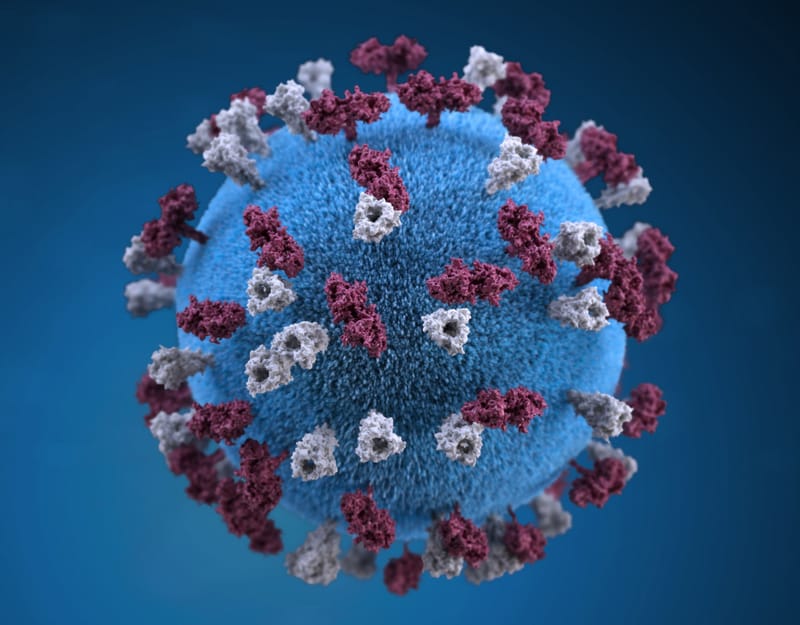C-reactive Protein

Question 1. What is CRP?
CRP is a protein made by your liver. It's released into your bloodstream in response to inflammation. Inflammation is your body's way of protecting your tissues if you've been injured or have an infection.
Question 2. What is its use?
CRP is used to detect infection and inflammation.
Question 3. I have high CRP. Do I have bacterial infection?
Significantly high CRP levels of more than 350 milligrams per liter (mg/L) are nearly always a sign of serious underlying medical condition. The most common causes of very high CRP are:
Severe infection,
Autoimmune disease,
Severe tissue damage &
Underlying cancer.
Question 4. What happens if CRP test is positive?
A high level of CRP in the blood is a marker of inflammation. It can also indicate inflammation in the arteries of the heart, which can mean a higher risk of heart attack. However, the CRP test is an extremely nonspecific test, and CRP levels can be elevated in any inflammatory condition.
Question 5. Can I use CRP to monitor response to treatment?
Improved infection and inflammation will cause drop in CRP level. Therefore CRP can be used to monitor improvement in treatment given as in monitoring rheumatoid arthritis treatment.
Question 6. What types of blood samples used?
A fasting blood is taken for measurement of CRP.
Question 7. What infections cause high CRP?
Most infections and inflammations produce CRP levels more than 100 mg/L. CRP is a general test that may indicate a variety of ailments including rheumatoid arthritis, pneumonia, cancer, tuberculosis, appendicitis, bacterial meningitis, inflammatory bowel disease and urinary tract infection
Question 8. Can CRP be elevated in viral infection?
The level of CRP in your blood goes up within a few hours of a serious infection. CRP levels can also rise when you have a viral infection. However, very high levels are not seen in viral infection and usually favour bacterial infection.
Question 9. How much will CRP rise in different infections?
Result must be interpreted with the history and examination findings. However, the following are commonly seen CRP levels:
10-40 mg/L mild inflammation and some viral infections
40 – 200 mg/L reflect acute inflammation and bacterial infection
>200 mg/L seen in extensive trauma, severe bacterial infections or cancer
Question 10. How much CRP level is dangerous?
Generally, a CRP level less than 10 milligrams per liter (mg/L) is considered normal. If the level of CRP in your blood is higher than that, it may mean your body is having an inflammatory reaction to something.
Question 11. Can stress cause high CRP levels?
Inflammation by-product linked to Stress. Using data from two large studies, Danish researchers have found that higher blood levels of CRP, are associated with a greater risk of psychological stress and clinical depression. “Dampening inflammation may be one way of treating depression.”
Question 12. Can Cancers cause high CRP levels?
Increased levels of CRP have been found in people with several forms of cancer, including melanoma, ovarian, bowel and lung cancer.
Question 13. How long does it take for CRP to return to normal?
In the first 24 hours of a disease process, the ESR may be normal and CRP elevated. The CRP will return to normal, within a day or so, if the focus of inflammation is eliminated. The ESR will remain elevated for several days until excess fibrinogen is removed from the serum
Question 14. Can I take antibiotics with normal CRP?
A CRP level < 10 mg/L suggests that a patient does not have a bacterial infection and therefore a prescription for an antibiotic is likely to do more harm than good,1 i.e. the potential adverse effects of the antibiotic outweigh any clinical benefits (which would be negligible in most cases).
Question 15. Is highly sensitive CRP the same as CRP?
Standard CRP measures CRP in the range from 10 to 1000 mg/L. Highly sensitive CRP tests measures CRP in the concentration ranges of 0.5mg to 10mg/L. Recent studies suggest that high HS-CRP level is associated with increased risk of cardiovascular diseases.


